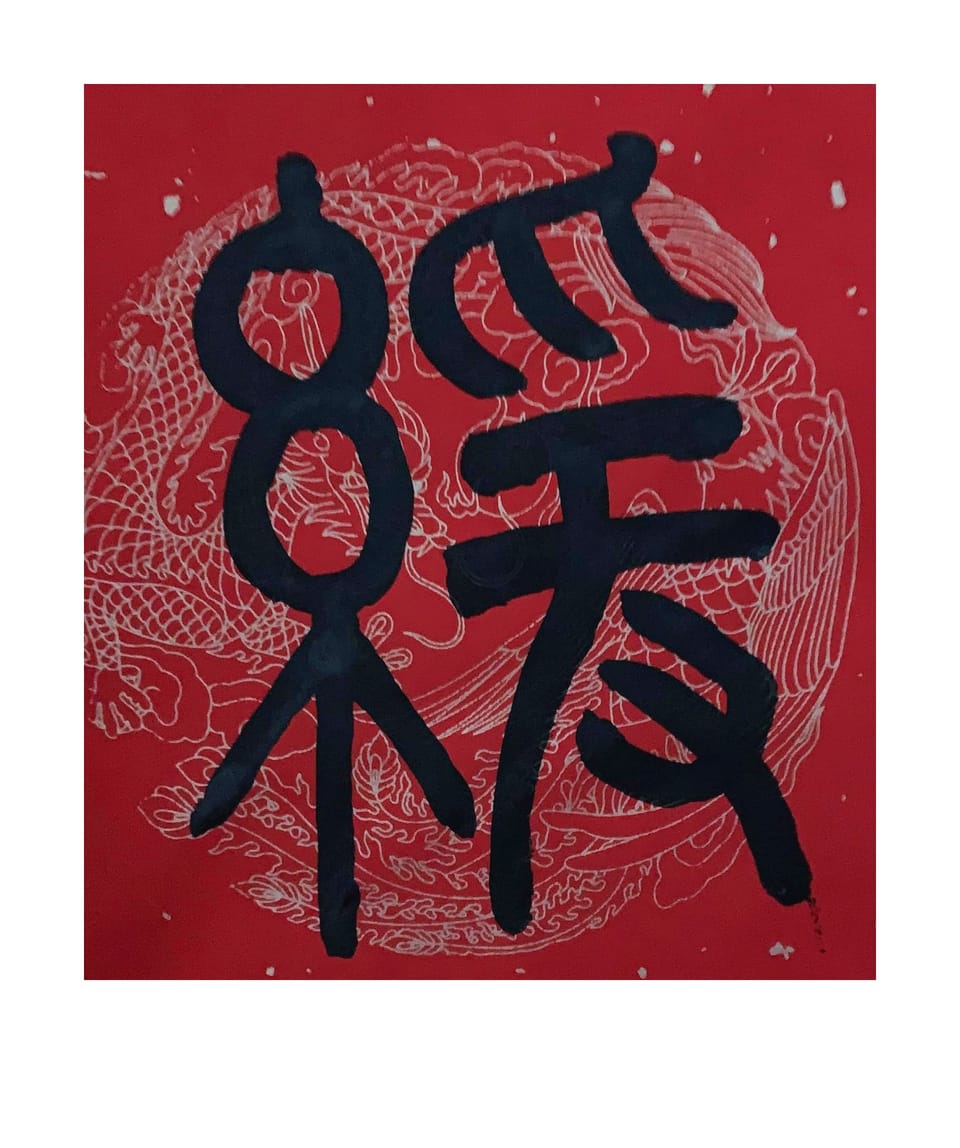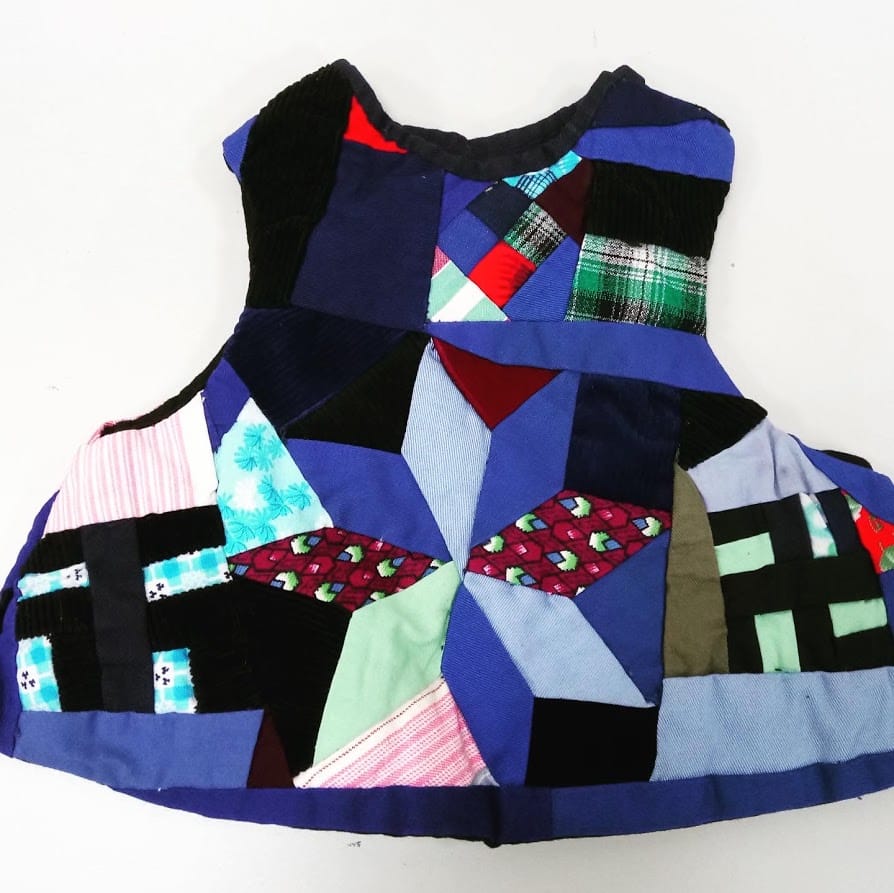Every year, my father gifts me a word

We always spend part of our Lunar New Year break staying at my parents' place, a 25-minute drive downtown from our house. Though they've remodeled the apartment two different times over the last forty years, it is the same place where I grew up. My husband and I don't own the house we live in - Taipei real estate is notoriously and unreasonably expensive, for one; the main reason is that philosophically, we are uncertain property should be owned. But when we bring the kids down to my old childhood home, a part of me yearns for a grounded, physical place where our children could always return to and feel that immediate sense of security - a compression of time and energy of all the memories and people that have physically moved in this particular space. But maybe a sense of security that is only linked to a physical place is an illusion, like the notion of an immutable self?
My family's new year's traditions are simple. The two main activities are eating and playing mah-jong, both of which are housed under the bigger umbrella objective of just being together. I grew up with the typical Taiwanese round dining table with a lazy susan for easy, turntable access to the family-style plates of food on offer. The second renovation of the apartment was an expansion, so my parents now have an even larger 12-person dining table. This year's new year's eve dinner included a cousin and his entire family and we were able to squeeze in 16 people, eating elbow to elbow, often turning the lazy susan only to find resistance because someone across the table was turning it the other way. After fruits and desserts, we transition to the mah-jong table, where we play until we're hungry for more snacks. Only four people can play mah-jong at a time, but in the spirit of being together, those of us who aren't in the playing rotation sit on the side couches and go on 7 Eleven snack runs and wend our way in and out of the game with light banter and sometimes, song.
There are other traditions - we wrap dumplings and hide a new coin in one of them and whoever eats it is blessed with extra good luck the rest of the year; the children memorize zodiac-appropriate new year's wishes to say to the elders on new year's eve in exchange for their red envelopes; on new year's day, we walk to our local temple to pray to the gods, thanking them for everything that transpired the previous year, and asking for continued blessing in the next. I love all of it - the full bellies, the noise, the singular focus on spending time with family.
My favorite tradition is relatively new, developed after my father retired about ten years ago. In his retirement, he picked up Chinese calligraphy, often spending hours each day copying lines of poetry and philosophy and Buddhist sutras, trying different brush sizes and different fonts. In the month leading up to Lunar New Year, my dad will buy special red paper to write new year's couplets for family and friends to put on either side of their front doors. He also gifts each of us a word for the year ahead, a word that acts as a reminder, a guide, an intention. Some years, he thinks of words for us; other years, we come up with our own words and he diligently writes them, offering different scripts for us to choose from.
This year, I chose my word. The character, 緩, which means slow, relaxed, soft. In this year of the snake, I wish to glide - maybe even drift a little - gently, quietly.
I don't know if most people have a favorite traditional Chinese radical - the part of the character that serves as both the indexing and semantic component, telling you something about its meaning - but mine is definitely 糸, which means thread. Characters with the 糸 radical, as with 緩, have to do with thread, fabric,
The reason I've titled this writing space "text/textile" is because my father was in the textile business, manufacturing children's apparel, and as a complement, my mother became a children's textile collector. I studied literature in college and writing in graduate school and it wasn't until I moved home to help out with both the business and the collection that I made the connection between text (words/writing) and textile (threads/weaving). 緩 has a thread radical because its original meaning describes the act of loosening a belt to make one's clothing more spacious and comfortable.
To add to my wish for the year of the snake: I wish for loosening and spaciousness.
I grew up never wanting for anything. My parents gave me and my brother the most precious, and perhaps the most difficult, gift parents can give their children - freedom. We were never in the habit of giving each other extra material things, as we were already privileged with plenty. Which is why I love this tradition even more - that the one thing my father does give me is one word, each year.
When we left my parents' place at the end of our new year holiday, my daughter asked me how 阿公 and 阿媽 sit at the dining table when it's just the two of them. "It's such a large table for just two people," she said.
Reminder: I should wend my way home more often.
